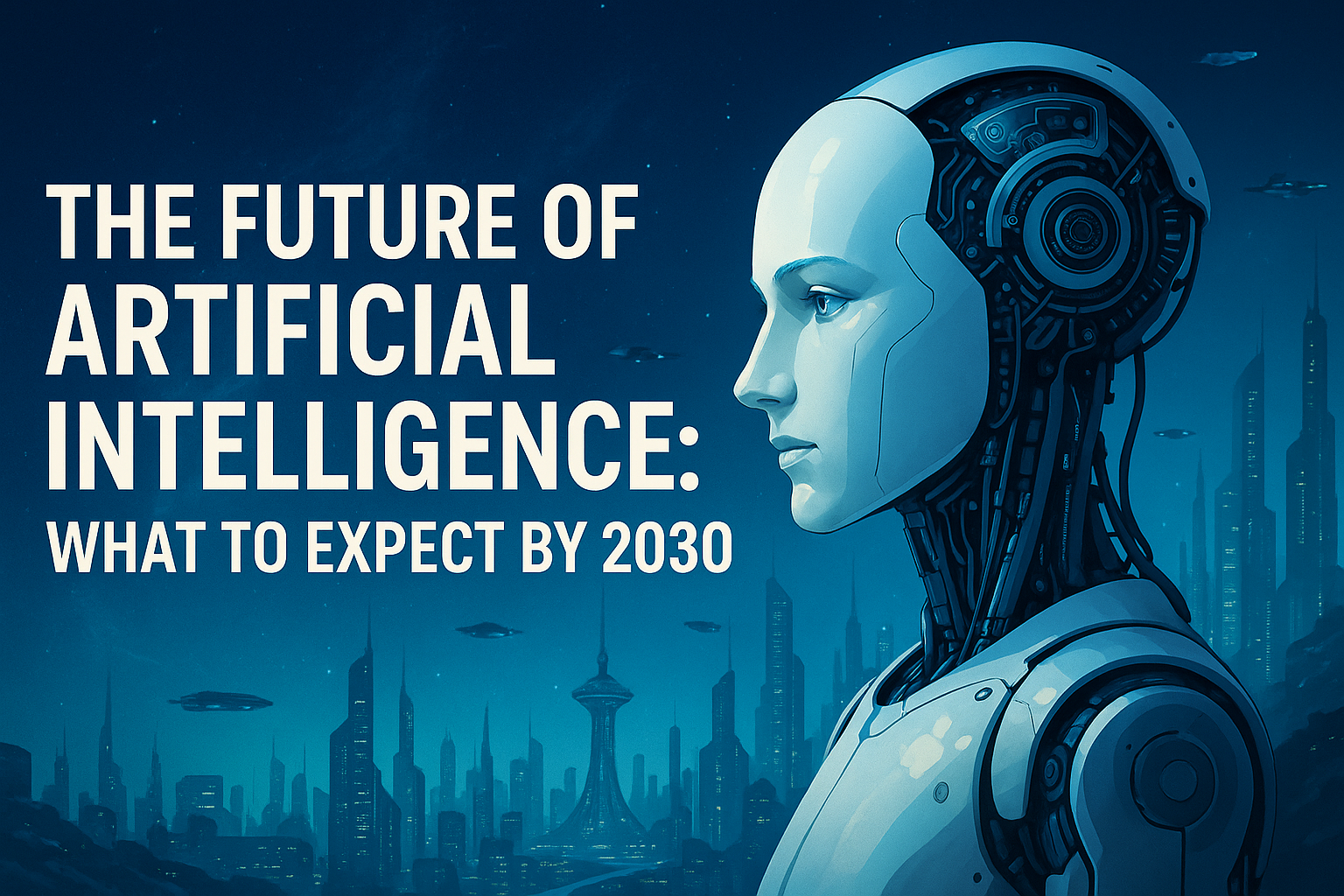Artificial Intelligence (AI) has already revolutionized our daily lives — from virtual assistants to personalized recommendations, smart automation, and real-time language translation. But the changes we’ve seen so far are just the beginning. What will the AI landscape look like by 2030? Let’s explore the key developments, challenges, and societal shifts we can expect over the next five years.
The AI Boom: What’s Driving the Acceleration?
Several factors are contributing to the rapid evolution of AI:
- Increased computing power: AI models are becoming more powerful thanks to advancements in GPUs and quantum computing.
- More data availability: The explosion of digital data enables better training of AI systems.
- Cross-industry adoption: From healthcare to logistics and finance, AI is becoming embedded in every sector.
- Greater investment: Governments and private companies are heavily investing in AI innovation and infrastructure.
These forces are setting the stage for an AI-powered decade.
1. Hyper-Personalization Everywhere
By 2030, AI will deeply personalize how we shop, learn, work, and consume content. Expect:
- Tailored education: Courses and content that adapt to your learning style in real time.
- Personalized healthcare: AI-powered diagnostics and treatment plans specific to your genetic and lifestyle data.
- Targeted media and advertising: Streaming platforms will deliver ultra-personalized content suggestions — even creating custom scenes or endings in real time.
2. AI and the Workplace: Colleagues, Not Replacements
While automation will continue to displace some tasks, AI is more likely to augment rather than replace many jobs.
Key trends:
- AI copilots: Professionals in finance, design, law, and writing will rely on AI tools to boost productivity.
- AI upskilling: Companies will invest in AI literacy and reskilling programs for employees.
- New AI-driven jobs: Roles like AI ethicist, prompt engineer, and automation strategist will become mainstream.
3. Autonomous Systems in Daily Life
By 2030, autonomous technologies will be integrated into our routines:
- Self-driving vehicles: Widespread use of autonomous taxis and delivery robots in major cities.
- Smart homes: Homes that automatically adjust lighting, temperature, and even meals based on your habits.
- AI in logistics: Drones and robotic warehouses will make same-day global delivery the norm.
4. Emotional AI: Machines That “Understand” Us
AI is advancing beyond logic and computation. Emotional AI will interpret facial expressions, tone of voice, and behavior to respond empathetically.
Applications include:
- AI therapists for mental health support
- Customer service bots with emotional awareness
- Education platforms that adjust based on student frustration or enthusiasm
5. Ethical and Legal Frameworks Catching Up
With greater AI power comes greater responsibility. Expect global efforts to establish rules for safe and ethical AI use.
Key topics will include:
- Bias and discrimination: Ensuring fair outcomes in finance, hiring, and law enforcement.
- Data privacy: Protecting user data from misuse.
- AI transparency: Understanding how AI makes decisions — especially in high-stakes areas like healthcare or criminal justice.
- Accountability: Defining who is responsible when AI makes a mistake.
6. AI and Creativity: A New Artistic Era
AI-generated art, music, and stories will become mainstream — not just for fun, but also for professional use.
- AI-assisted design in architecture and fashion
- Personalized music generated based on your mood
- Script and video generation for marketing and entertainment
Humans will remain the creative directors, with AI acting as the ultimate brainstorming partner.
7. AI for Global Good
AI will play a major role in addressing global challenges, including:
- Climate change modeling and mitigation
- Food security via smart agriculture and crop forecasting
- Disaster response and prediction
- Disease surveillance and vaccine development
Non-profits and governments will increasingly rely on AI to accelerate impact and efficiency.
8. Quantum Computing and AI Fusion
By 2030, AI may be enhanced by quantum computing, allowing for the processing of complex problems that current systems can’t handle. This could unlock breakthroughs in:
- Protein folding and drug discovery
- Advanced cryptography
- Simulations of entire ecosystems or cities
This combination will take AI from fast and useful — to almost unimaginable levels of power.
9. Human-AI Relationships
With AI becoming more personal, people may form deeper bonds with AI companions, especially in areas like:
- Elder care: AI caregivers that offer both help and conversation.
- Social connection: AI friends that offer companionship to the lonely.
- Life coaching: Smart assistants that help you achieve goals, stay on track, and make decisions.
These relationships will raise new ethical and psychological questions.
Final Thoughts: Prepare, Adapt, Thrive
The AI revolution is not something to fear — it’s something to understand and embrace. By 2030, AI will be woven into the fabric of society, not as a replacement for human intelligence, but as a powerful tool to enhance it. Whether you’re a student, entrepreneur, parent, or professional, the key is to stay informed, stay adaptable, and stay human.
